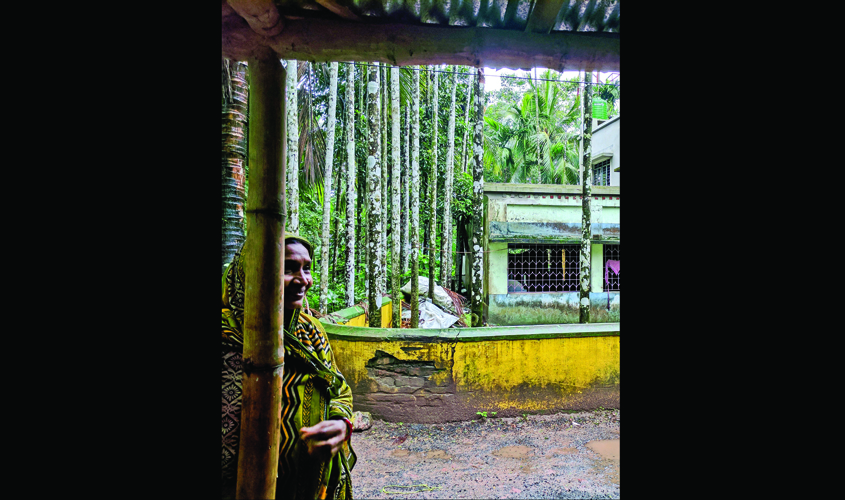Locals belonging to the Hindu community here said that had the Hindus not united even at this hour of crisis, people from their religion would have been “wiped out” from Basirhat and adjoining areas, as mobs allegedly belonging to the Muslim community ran riot for three days, torching houses and shops and desecrating temples. People from the minority community here, however, believe that the Muslims of Basirhat are being “misunderstood” and that local Muslims had nothing to do with the rioting.
Rakesh Ghosh, a local mass leader, told this correspondent, “A divide between the two communities has now been created and this will not go away anytime soon. We have to be united to protect ourselves.”
Ghosh further added that the desecration of a 200-year-old temple at the heart of Basirhat by the rampaging mob and the entry of local Trinamool Congress (TMC) MLA Dipendu Biswas, who got a few Hindu men arrested instead of the ones who were rioting, led to a massive Hindu consolidation and backlash from the community.
Sadiya, a middle-aged lady standing outside her house while speaking to The Sunday Guardian, said, “We have not done anything. They are misunderstanding us and what has happened has left us divided.”
Many also believe that the “appeasement politics” resorted to by the ruling TMC government in West Bengal is to be blamed for the growing divide between the two communities—not only in Basirhat, but across the state.
Standing outside his house in the Choto Jiragpur para in Basirhat, Soumitra Chakraborty, a resident, told this correspondent that whatever happened in Basirhat was because of the TMC government: “They (the government of West Bengal) have been protecting members of the minority community for the last six years for the sake of votes, but they do not realise that even Hindus are voters in Bengal. West Bengal will see more such incidents in the future if this sort of dirty politics is not stopped by the ruling party here.”

The “appeasement politics” of the TMC government has led to the growth of the Bharatiya Janata Party (BJP) in the area, sources said. Basirhat was one of the first places in the state from where a BJP candidate, Shamik Bhattacharya, won a byelection, in 2014, making him the only BJP representative in the 294-seat Assembly in the state then.
Many in Basirhat also said that the chances of the TMC winning in the next election from this region are bleak as votes will be divided on religious lines.
Deba Das, a Basirhat resident, told this correspondent that if the people are allowed to vote in a democratic manner in the panchayat elections next year, the TMC “will understand the unity and strength of the Hindus in this area”.
However, the Muslims this correspondent talked to here denied that any undue favours had been given to them by any political party because of their religion.
Saiful Mondal, a shopkeeper in the Teen Mohni marketplace in Basirhat, said, “We have not received any favours from the ruling government. This narrative is being spread by political parties to divide us on religious lines for their political benefits. We want to live in peace like we used to do before.”

